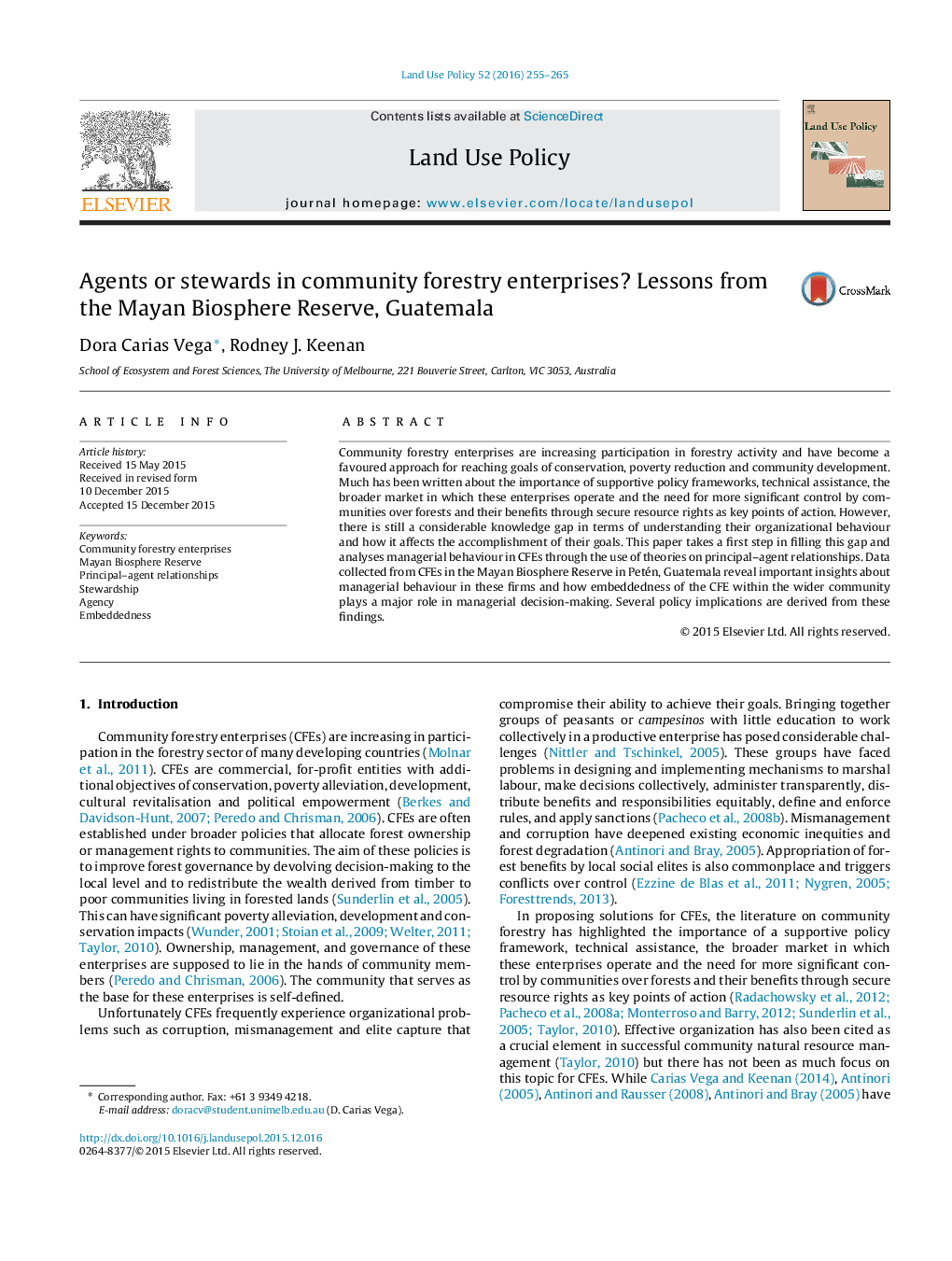| Article ID | Journal | Published Year | Pages | File Type |
|---|---|---|---|---|
| 6547466 | Land Use Policy | 2016 | 11 Pages |
Abstract
Community forestry enterprises are increasing participation in forestry activity and have become a favoured approach for reaching goals of conservation, poverty reduction and community development. Much has been written about the importance of supportive policy frameworks, technical assistance, the broader market in which these enterprises operate and the need for more significant control by communities over forests and their benefits through secure resource rights as key points of action. However, there is still a considerable knowledge gap in terms of understanding their organizational behaviour and how it affects the accomplishment of their goals. This paper takes a first step in filling this gap and analyses managerial behaviour in CFEs through the use of theories on principal-agent relationships. Data collected from CFEs in the Mayan Biosphere Reserve in Petén, Guatemala reveal important insights about managerial behaviour in these firms and how embeddedness of the CFE within the wider community plays a major role in managerial decision-making. Several policy implications are derived from these findings.
Keywords
Related Topics
Life Sciences
Agricultural and Biological Sciences
Forestry
Authors
Dora Carias Vega, Rodney J. Keenan,
